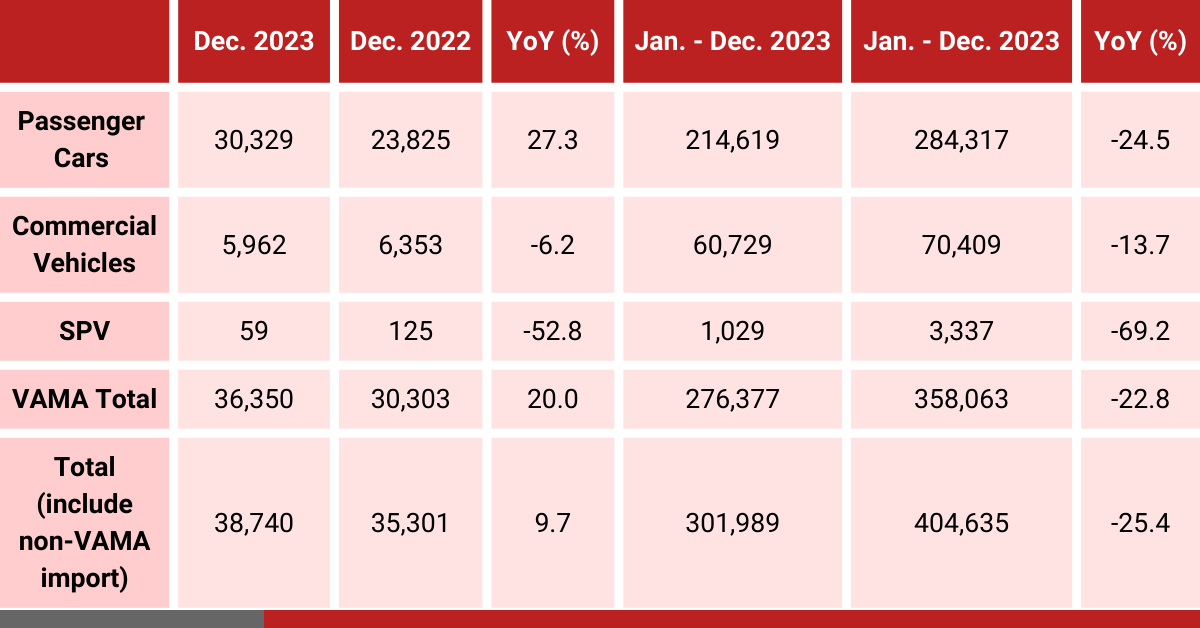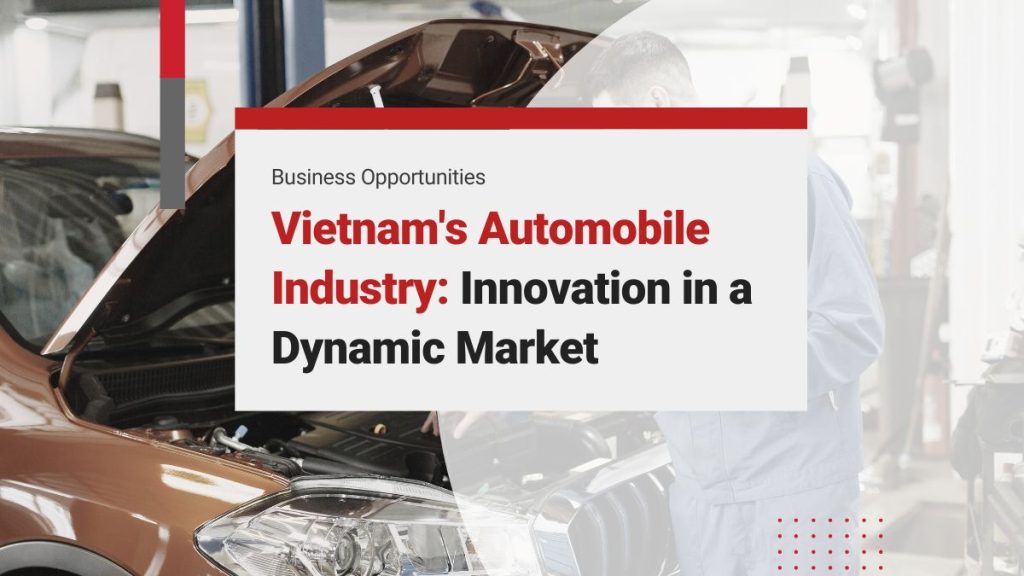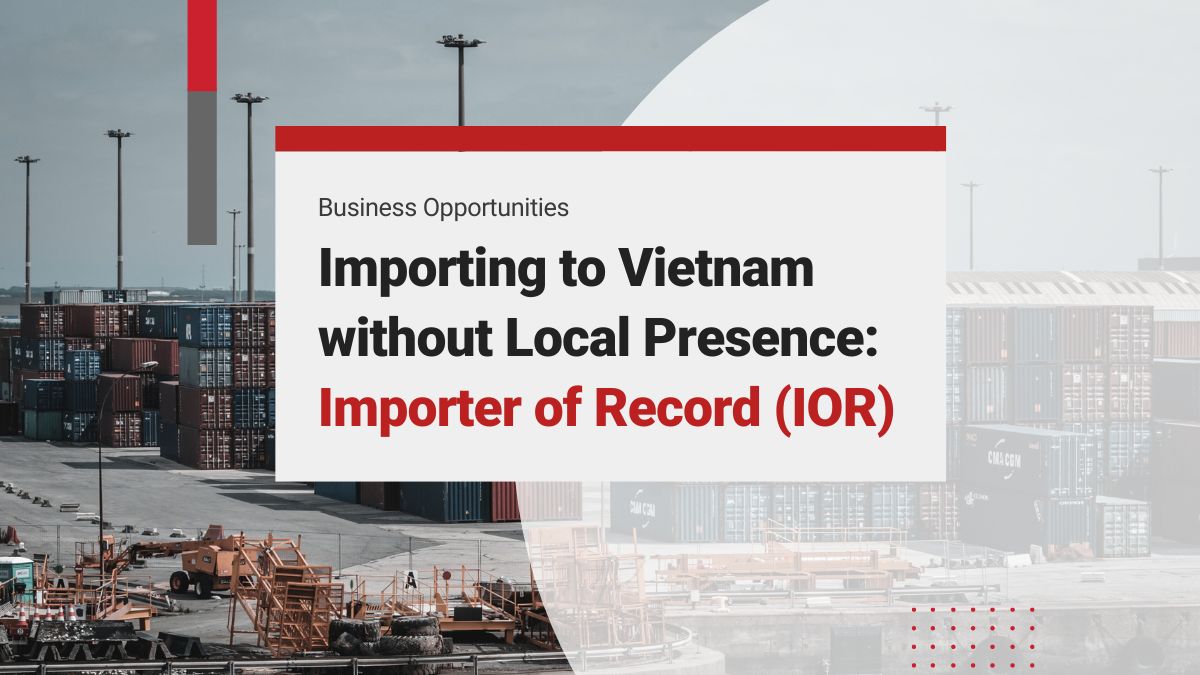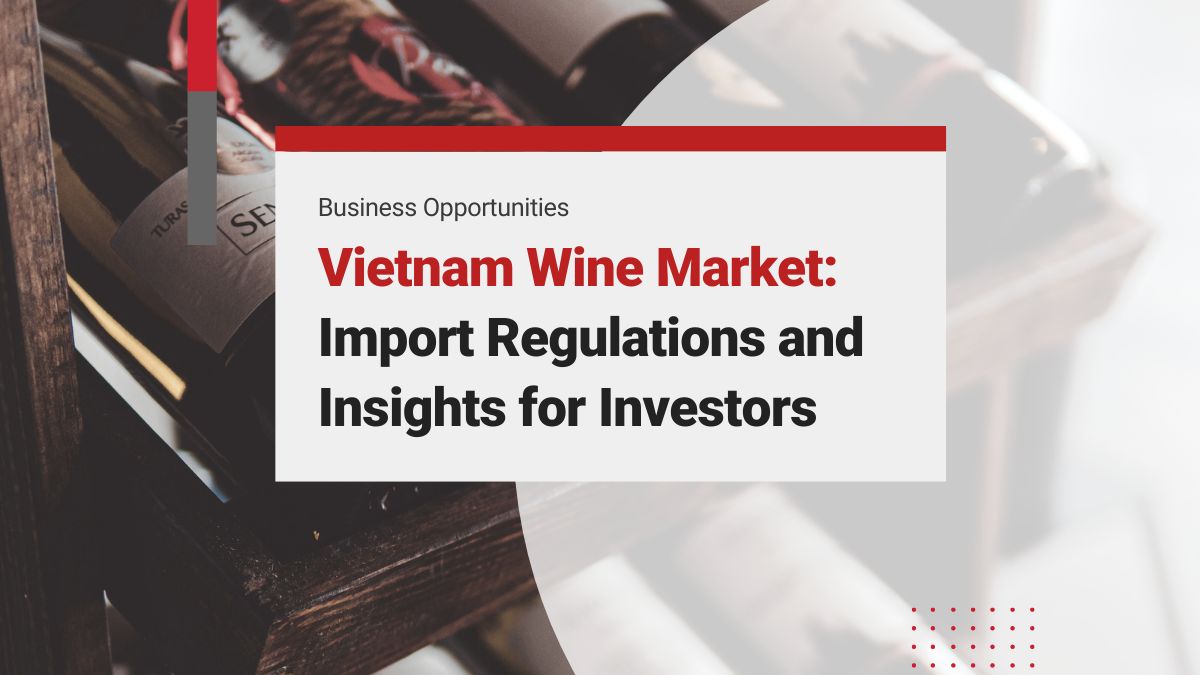The automobile industry in Vietnam is witnessing swift growth, with annual expansions reaching 20-30%, surpassing Ministry of Industry and Trade projections. This growth includes both foreign-owned vehicle imports and the emergence of a local car company gaining global recognition. Besides, the country has imported over 100,000 automobiles, primarily vehicles, within the first nine months of 2021, indicating a 267% increase from 2020.
This surge reflects the rising purchasing power and increased usage of private cars among Vietnamese. The country’s automobile industry, recognized for contributing to national development, aims to meet domestic demands, integrate globally, and prioritize environmental standards by 2035. This ambitious plan underscores the commitment to sustainable growth and international competitiveness in the automotive sector.
Interested in Vietnam’s Automobile Industry? Check out InCorp Vietnam’s Incorporation Services
Automobile Industry in Vietnam
Vietnam’s automotive industry, established in 1991, has witnessed significant growth, particularly in the last three years. The number of domestically produced or assembled vehicles steadily rose, reaching 439,600 in 2022, marking a 14.9% increase from 2021. With over 40 businesses engaged in producing various types of vehicles, including passenger cars, trucks and industrial vehicles, the automobile industry has attracted significant global carmakers like:
- Toyota
- Honda
- Ford and their foreign satellite producers and component suppliers.
The Vietnamese component suppliers qualified to be Tier-1 vendors for large carmakers have surged to over 400, indicative of the country’s burgeoning automobile market.
Despite challenges posed by the COVID-19 pandemic, Vietnam’s car purchasing power has rebounded, with total sales volume witnessing a 33% increase in 2022. The Vietnam Automobile Manufacturers Association (VAMA) report, released on 10 January, indicated a 9.7% year-on-year increase in automobile sales, including those of non-VAMA manufacturers, reaching 38,740 units in December. This marked the initial instance of positive monthly sales growth since February 2023. Here is the sales volume by type of VAMA (Vietnam Automobile Manufacturers’ Association) in 2022 – 2023:

Vietnam’s automotive market is now one of the fastest-growing in Southeast Asia. Instead of high import taxes on automotive vehicles, imported cars remain popular due to the limitations of the domestic sector. Local manufacturers heavily rely on imported advanced parts for assembling automobiles, leading to non-competitive pricing for domestically-produced cars compared to foreign models.
Consequently, foreign brands, particularly Japanese and Korean manufacturers, dominate Vietnam’s automobile market, offering affordable prices and low maintenance costs, thus catering to the preferences of Vietnamese consumers.
Read Related: Guide to Setting up Manufacturing Business in Southeast Asia
Korean Investment Grows in Vietnam’s Car Part Furniture Industry
Several companies from South Korea have expressed a keen interest in exploring the Vietnamese market and the country’s investment regulations. This represents a prime prospect for Vietnamese industrial parks and enterprises to engage with Korean business partners. It will promote investment interest and bolster collaboration in manufacturing value chains. Auto parts manufacturing stands out as a key area of focus for Vietnamese firms.
Han Hwang Ind. Co., Ltd. and Shin Shin Machinery Co., Ltd. of South Korea plan a US$5.1 million investment in a project to manufacture car and vehicle spare parts in Binh Dinh province. The project, certified by the Binh Dinh Economic Zone Administration, will operate in the Becamex Binh Dinh Industrial Park, producing auto, engine, brake, and heavy machinery spare parts. All set for completion and trial production between the first and third quarters of 2026, the project emerged after a year-long negotiation following Binh Dinh officials’ visit to South Korea in September 2022.
Despite challenges in foreign direct investment (FDI) attraction, especially in European markets, provincial leaders plan to promote investment opportunities in Israel, the U.S., and Canada. Binh Dinh province has secured three new FDI projects, totaling over US$5.2 million since the year’s start, with Korean investors contributing US$76.6 million to the province’s total FDI.
Read More: Vietnam’s FDI: Analysis of Industries, Source Countries, and Geographical Regions
VinFast – Pioneering Vietnam’s Automotive Revolution
Vinfast made a splash with its debut of Vietnam’s first homegrown automobile at the 2018 Paris Motor Show. It showcased the LUX SA2.0 SUV and LUX A2.0 sedan, positioned in the near-premium segment with robust engines and abundant features. The more affordable Vinfast Fadil also gained popularity among Vietnamese consumers.
We all know that electricity is the most common form of energy used today. Vinfast is adopting sustainability with the launch of smart EVs, akin to Tesla. This move stimulates traditional manufacturers and aligns with government incentives for EVs, accelerating Vietnam’s electrification journey.
Vinfast’s vision for a sustainable future resonates globally, as its recent introduction at the Los Angeles Auto Show signals its determination to lead the electric car market, recognized by international media as a potential game-changer.
State-of-the-Art EV Battery Hub in Vung Ang Economic Zone
The People’s Committee of Ha Tinh Province and Vingroup have initiated the construction of the VinES Battery Manufacturing Factory in the Vung Ang Economic Zone. It has invested US$173.7 million in 8 hectares of land for the initial phase. This marks a significant milestone in VinFast’s pursuit of self-sufficiency and global battery supply for its electric vehicles.
Vietnam’s first and most advanced factory integrates European and American-standard technology with an impressive 80% process automation rate. Collaborating with world-leading firms, the VinES Battery Manufacturing Factory will produce Lithium batteries for VinFast’s electric cars and buses. It is now aiming for an annual production capacity of 100,000 battery packs in Phase One, scaling up to 1 million in Phase Two.
Read Related: Vietnam’s Industrial Zones: A Key Player in Global Manufacturing
Two Electric SUVs for the Global Market
VinFast’s ambitious venture into electric vehicles includes the production of two models, VFe35 and VFe36, in their highly automated plant in Vietnam. This plant was developed in collaboration with Italian automaker Pininfarina. The company’s decision to focus solely on electric vehicles in the United States, with deliveries, was commenced by late 2022. It marked a groundbreaking move in Vietnam’s automobile industry.
The construction of the VinES Battery Manufacturing Factory in the Vung Ang Economic Zone illustrates VinFast’s commitment to self-production and global battery supply for its electric vehicles. This initiative is supported by a substantial investment of nearly US$173.7 million.
The factory’s Phase One, spanning 8 hectares, targets an annual production capacity of 100,000 battery packs. At the same time, Phase Two aims to scale up to 1 million battery packs annually, boasting an impressive 80% automation rate. It integrates European and American-standard technologies through strategic partnerships with leading electric vehicle battery production firms.
Vinfast might Outperform Korea’s Kia
VinFast, with its innovative VinFast series, stands out by gradually increasing production while investing significantly. It is potentially positioning itself to rival Korea’s Kia in the future, as noted by Autoexpress.
The company’s market capitalization soared to US$85 billion during its Nasdaq debut, marking a significant milestone for Vietnam’s electric vehicle industry. Established in 2017, VinFast envisions leading the global smart electric vehicle revolution from its highly automated manufacturing complex in Hai Phong city.
The facility boasts an initial production capacity of up to 300,000 units annually. With its strategic trajectory and burgeoning market presence, VinFast promises to shape Vietnam’s automotive landscape for decades.
Vietnam’s Progressive Policies Driving the Automobile Industry Forward
In addition to formulating a long-term development strategy, the Vietnamese government has implemented policies to stimulate the automotive industry. It has waived registration fees for battery electric vehicles from 2022 to 2025.
Furthermore, halving registration fees took a significant step for domestically produced or car-assembled cars between 1 December 2021 and 31 May 2022. Another substantial move involved abolishing regulations related to the calculation of the locally made component rate starting from 1 October 2022.
Nguyen Chi Sang, the Vice Chairman and Secretary General of the Vietnam Association of Mechanical Industry (VAMI) praised the decision to reduce registration fees for locally made vehicles in 2021 and 2022 as a timely support policy. He highlighted the positive impact, citing a boost in the automobile market with 500,000 units sold.
VAMI acknowledged the industry’s progress through expanded projects and new investments, contributing to the growth of domestically produced and assembled cars. According to VAMI, this trend creates significant opportunities for the domestic supporting industry to advance in quantity and quality. Intending to achieve a 40% domestically made component rate, VAMI envisions Vietnam emerging as a prominent car manufacturing hub in the region. It will involve approximately 1,000 component suppliers in the automobile supporting industry.
The government further demonstrated its commitment to supporting the domestic automobile sector by issuing Decree 41/2023/NĐ-CP. It entails a 50% reduction in registration fees for domestically produced and assembled cars, reinforcing the industry’s growth trajectory.
Why Invest in Vietnam’s Automobile Industry?
Vietnam’s Ministry of Finance proposed a tax strategy to bolster investment in its automobile industry. The strategy involves reducing or eliminating taxes on domestically made automotive components to lower total production costs.
Simultaneously, the Ministry suggested raising taxes on specific automobiles, anticipating increased costs for imported vehicles, as reported by Asia Perspective. Likewise, the Ministry of Industry and Trade recommended a lower corporation tax rate for vehicle manufacturers and their supporting industries.
Vietnam’s automotive sector stands to gain access to major European car markets like Germany, France, and the United Kingdom following an agreement. In return, Vietnam committed to eliminating all import taxes on EU automotive exports. Additionally, the country is showing promising market dynamics, including
- The nine-seat vehicle segment of the country sees 20-30% growth rates
- With a per capita GDP surpassing US$4,000 and an average of around 50 cars per 1,000 people.
- Economic expansion, urbanization, and a growing middle class propel automobile demand, promising significant development opportunities for the industry until 2025.
- The EU-Vietnam Free Trade Agreement (EVFTA), in effect since 1 August 2020, has positively illuminated Vietnam’s automotive industry outlook.
- Cars produced and assembled in Vietnam can qualify for a 0% export tax if they meet the prescribed localization rate. The new car registrations in Europe exceeded 15.8 million vehicles in 2019, rendering it an exceptionally appealing market.
- Capitalizing on Vietnam’s membership in the ASEAN Economic Community, certain domestic businesses have effectively exported vehicles to neighboring countries. The ASEAN Automobile Federation (AAF) data reveals that in 2019 this collective region acquired almost 3.4 million new cars.
- In 2019, China responded to a US tariff hike by increasing tariffs on American-made car exports from 15% to 40%. Despite the preference for domestic brands among Chinese consumers, US automakers, including Tesla, are compelled to navigate obstacles to boost their market share in China.
Read More: Ease of Doing Business in Vietnam: Why Do Foreign Investors Choose This Destination?
How can InCorp Vietnam help?
Company incorporation in Vietnam consists of multiple procedures that could be more time-consuming and formal. Having company registration professionals, like InCorp Vietnam, by your side can save you a great deal of time and provide you with a hassle-free experience. It delivers a broad spectrum of ancillary services related to company registration, like
- Legal consultancy
- License
- Documents acquisition
- Tax and Accounting
- HR services.
About Us
InCorp Vietnam is a leading market entry and corporate services firm in Vietnam. We are part of InCorp Group, a regional leader in corporate solutions that encompasses 8 countries in Asia-Pacific, headquartered in Singapore. With over 1,200 legal experts serving over 15,000 Corporate Clients across the region, our expertise speaks for itself. We provide transparent legal consulting, setup, and advice based on local requirements to make your business fit into the market perfectly with healthy growth.
Don’t take our word for it. Read some reviews from some of our clients.









